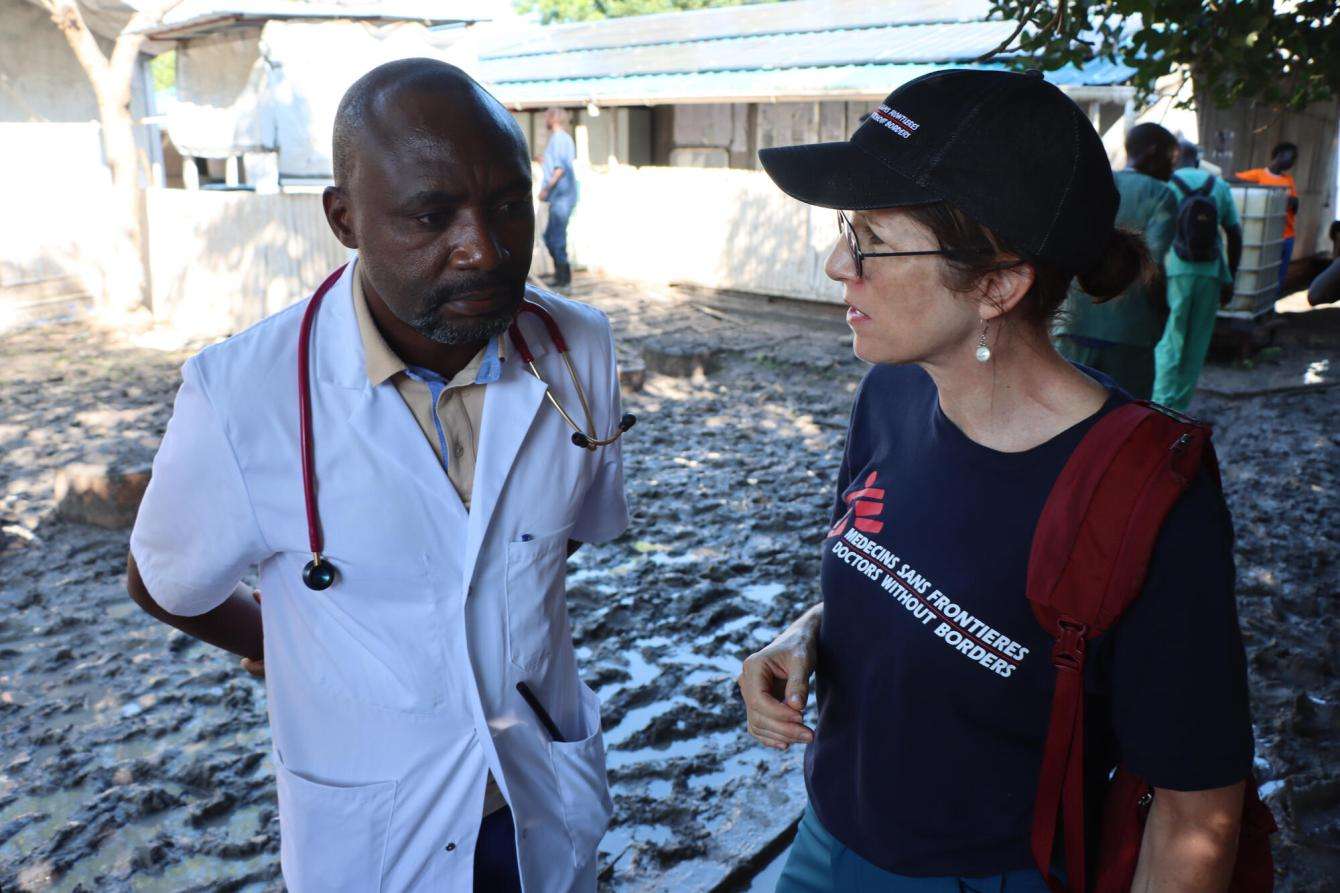By Avril Benoît, executive director of Doctors Without Borders/Médecins Sans Frontières-USA (MSF-USA)
Hidden in marshlands in the northern region of South Sudan is Old Fangak, a remote town where many people have sought safety from conflict over the years. But the terrain that once kept people safe has turned against them as climate change has exacerbated existing health issues and created new ones. The waters that kept conflict at bay are now an obstacle to travel, and the dense vegetation where people hid from violence has become overgrown and unruly, making accessing basic services like health care extremely difficult. For many of those who fall ill in this area, it can take days by canoe to reach the hospital.
While visiting the hospital that MSF has supported in Old Fangak since 2014—the only hospital in an area with 20,000 people—I met a woman who had recently made the difficult decision to flee the ongoing violence in Sudan after living there for nine years.
Climate crisis is yet another for the world's most vulnerable
Nyakena gathered her six children, hopped on the bus, and hoped they would be safer in Old Fangak, a town where the only family she has is her mother-in-law. She hasn’t heard from her husband since September, though she believes he’s still in Khartoum.
Once she reached South Sudan, she waited in line all day but didn't reach the end to be registered as a returnee to South Sudan, which is necessary to receive assistance like food and cash to help people restart their lives. Instead, she and her children made their way to Old Fangak with only what they brought with them from Sudan.
Now her two-year-old daughter, Chudier, is fighting for her life after being admitted to the hospital for malaria and malnutrition.
From extreme heat in the Middle East to more frequent intense cyclones in southern Africa to an increase in diseases transmitted by mosquitoes in Central America, our teams see every day in our medical operations that the climate crisis is yet another that vulnerable people like Nyakena must overcome just to survive another day.

Extreme floods bring serious health risks
One of the main health issues associated with extreme flooding is malaria, since stagnant water is a breeding ground for mosquitoes. As a result, the majority of the patients we see at the hospital in Old Fangak have malaria, especially during the rainy season.
Extreme flooding also increases the chances of outbreaks of waterborne diseases like cholera and hepatitis E. In and around Old Fangak, latrines are flooded and drinking water sources are contaminated. There is an ongoing hepatitis E outbreak—a waterborne disease that can be especially deadly for pregnant people.
Submersed land also means that people are unable to grow crops, and their livestock aren't able to graze. While the UN World Food Program is providing some food assistance, it was recently reduced in eastern Africa amid increasing global needs. This leaves children and adults more vulnerable to malnutrition.
In Old Fangak, many men have turned to fishing for themselves and their families, but Nyakena has no one to fish for her. Many women have turned to less traditional and nutritional food sources like water lilies, but Nyakena said she doesn't know how to prepare them.
The situation for our patients is only going to get worse as humanitarian needs are estimated to double by 2050.
In photos: The health effects of climate change in Old Fangak
View the photo storyCOP28 leaders must commit to equity in climate response
As I visited Nyakena's flooded village, one of the community elders told me that everyone relies on each other to survive the flooding. Surrounding communities help each other build dikes to keep the water at a distance, and families offer up their homes to those who've been displaced so they have somewhere dry to sleep.
As world leaders meet at the annual United Nation COP28 climate change conference, they must commit to responding to the climate emergency with this same sense of solidarity and commitment to equity.
Currently, people across the globe who are the least responsible for the greenhouse gas emissions that have caused the climate crisis are suffering the worst consequences since they have the fewest resources to adapt to their new realities and mitigate the impacts of climate change. It is unacceptable that they are paying with their health and their lives for a problem they did not create.
The most affected communities and countries have repeatedly asked for— but are not receiving—the support they need. Promises to set up a financial support fund have been made on paper, but now these promises must translate into concrete financial commitments to ensure that help is truly reaching those who need it most.



